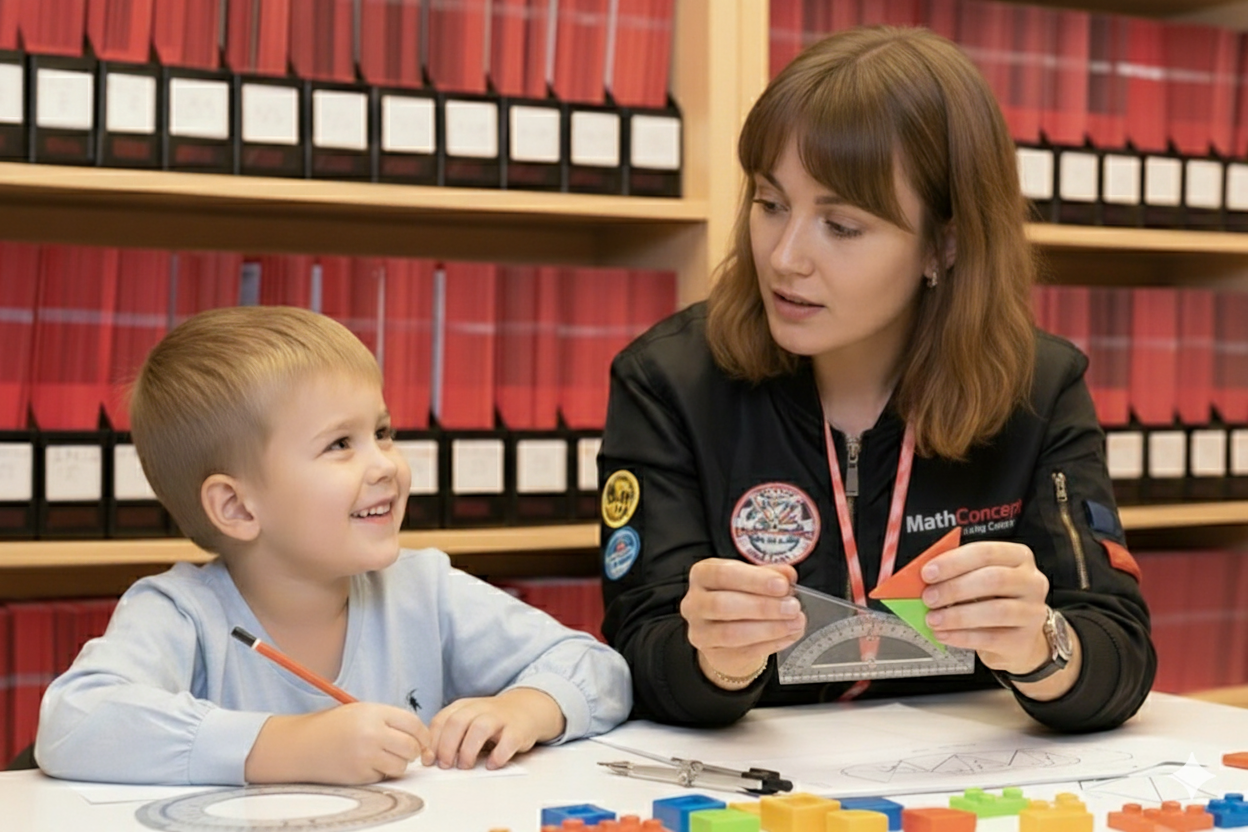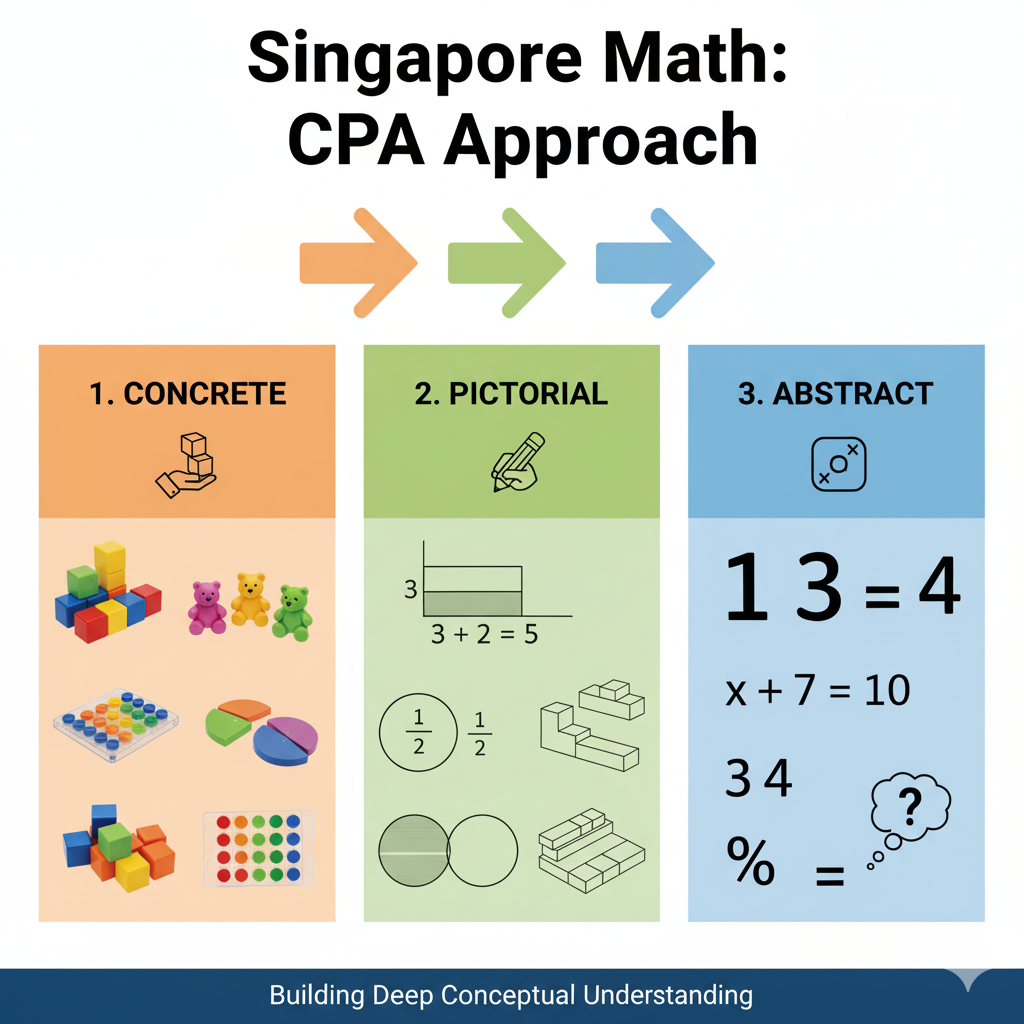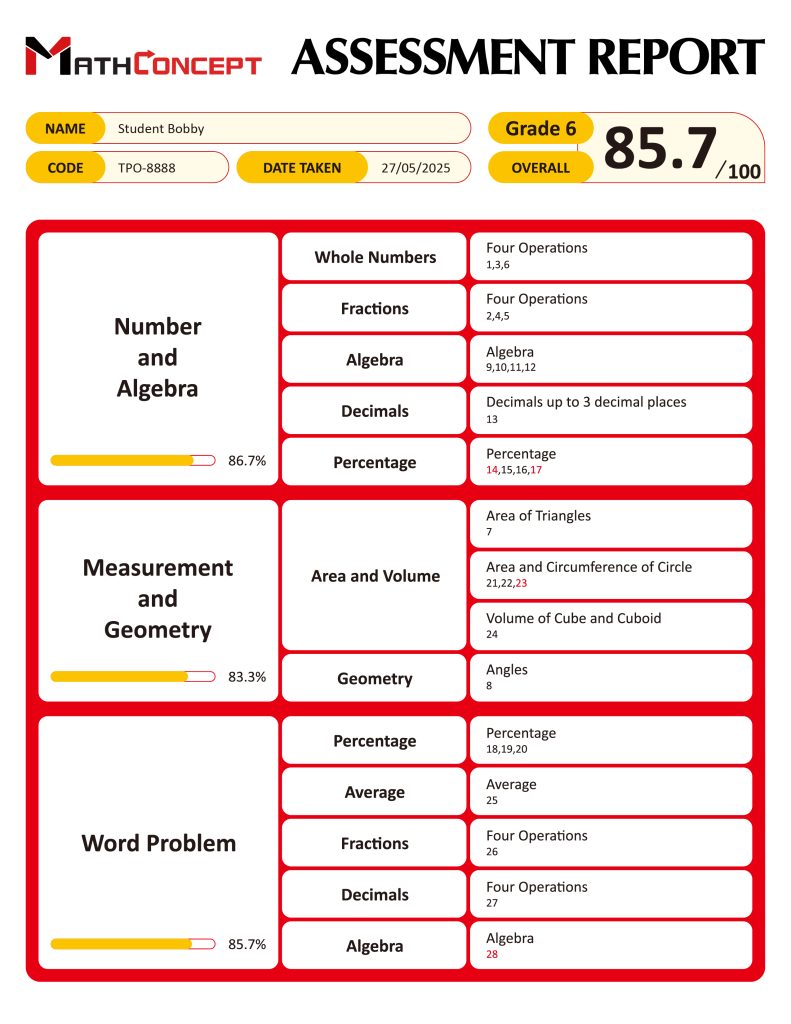
Discover Your Child’s Strengths and Confidence with a Singapore Math Assessment
Why Problem-Solving Matters More Than Memorisation
Memorising multiplication tables is one thing. But when a problem looks different, many kids freeze — and confidence crumbles. Parents are left wondering: “Does my child really understand math, or are they just memorising?”
That’s why real math success isn’t about quick recall, but about problem-solving. A Singapore Math assessment helps reveal the difference.
Why Singapore Math Is Ranked #1 Worldwide
Globally recognised and consistently ranked #1 in international math studies such as TIMSS and PISA, Singapore Math has become the gold standard for building strong foundations.
What Makes Singapore Math Different
Instead of rushing children through formulas to memorise, Singapore Math uses a step-by-step approach that builds deep understanding. Concepts move from concrete to pictorial to abstract, helping children connect numbers to meaning and apply ideas in different contexts.
As a result, children don’t just learn how to get the right answer — they learn why it works. This develops problem-solving skills, resilience, and confidence when facing unfamiliar questions.
Why It Matters for Canadian Families
For Canadian families, this matters because it fits closely with the BC curriculum, which also emphasizes critical thinking and real-world application. Whether it’s a Grade 4 student in Vancouver or a Grade 7 student in Toronto, the Singapore Math approach helps children not only keep pace with classroom expectations but also gain the confidence to go further.

What Parents Can Expect in the MathConcept Singapore Math Assessment
Unlike a test, this assessment is stress-free and child-friendly. Children often see it as a set of fun math activities rather than an exam — which helps them relax and show their true thinking skills.
The assessment covers four key areas:
- Number & Algebra – understanding place value, number operations, and patterns.
- Measurement & Geometry – working with shapes, units, time, and spatial reasoning.
- Statistics – interpreting charts, graphs, and data (introduced depending on grade).
- Word Problems – applying math to real-life scenarios, the heart of Singapore Math.
Tutors also ask gentle “thinking questions” during the process, such as: “Why did you choose that method?” This helps reveal how a child reasons, not just whether the answer is right. Parents find this especially helpful because it shows how their child approaches problems — a true window into their learning style.
Clear Results Parents Can Understand
Instead of a single score, results are shown by percentages (%) so progress can be tracked over time.Parents tell us this gives them peace of mind — they can finally see growth in a way that makes sense.

Why It Matters for Parents and Children
- For children: It’s not just about finding gaps — it’s about celebrating strengths. Many kids leave the assessment smiling because they discover what they can do, and that boost in confidence carries into school and daily life.
- For parents: Instead of guessing whether your child is struggling or coasting, you’ll see clear results broken down by topic. This gives you the reassurance of knowing exactly where your child stands, and what support will make the biggest difference.
- With tutors as a bridge: Our tutors don’t just mark answers — they observe how your child thinks, explain what that means in plain language, and share practical ways to help at home. Families often tell us this is the first time math has “made sense” on both sides of the table.
Key Takeaways for Families
- The assessment is welcoming, not stressful.
- It looks at both answers and the thinking process.
- Results are shown as percentages (%) to track growth.
- It highlights strengths as much as gaps.
- It supports Canadian math learning while drawing from Singapore Math’s global success.
Every child has unique strengths waiting to be celebrated, and challenges that can turn into growth. A Singapore Math assessment with MathConcept Learning Center is simply the first step in that journey — for your child, and for you as a parent.
If you’d like to gain clarity about where your child stands — and how to support their confidence in math — you can book an assessment with us anytime.
Read more:
Pomodoro Technique for Kids: Make Math Time Calmer and Focused [Read now]
3 Easy Ways to Make Math Fun and Practical for Primary Students [Read now]

